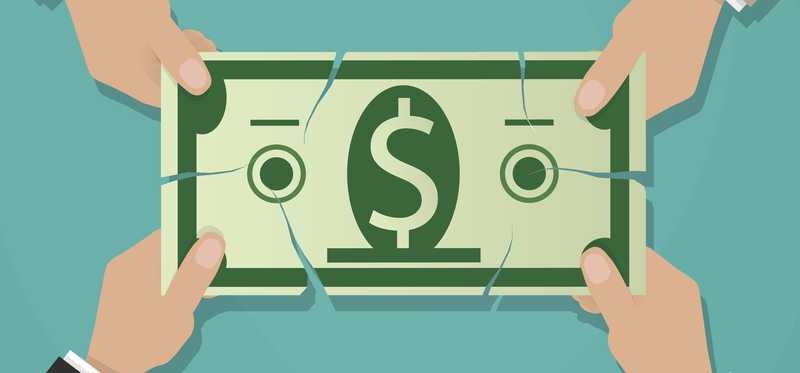7 Financial Goals You Should Set in Your 20s

7 Financial Goals You Should Set in Your 20s
Time to make a plan
When you’re in your 20s, you generally have lots of time and lots of opportunities ahead of you. You’re also generally in good health. In addition, if you have kids, certain big expenses like driving, club/travel sports, and college are still very likely in your future. That combination gives you a once-in-a-lifetime chance to put financial goals in place and plans to meet them.
Of course, that chance is balanced against the fact that you’re just starting out in life. You’re probably not earning a high wage yet, and you’re likely facing the costs of starting up your life as well as potentially some college debt. With that balance in mind, here are seven financial goals you should set in your 20s, in order to get yourself on a great path for your future.
5 Winning Stocks Under $49
We hear it over and over from investors, “I wish I had bought Amazon or Netflix when they were first recommended by the Motley Fool. I’d be sitting on a gold mine!” And it’s true. And while Amazon and Netflix have had a good run, we think these 5 other stocks are screaming buys. And you can buy them now for less than $49 a share! Simply click here to learn how to get your copy of “5 Growth Stocks Under $49” for FREE for a limited time only.
Previous
Next

1. Get out of bad debt
Especially when you’re just starting out in life, a little debt may be unavoidable. The important thing to recognize, though, is that not all debt is created equal. If a debt you have meets any of these criteria, it’s worth building a plan to get rid of it as quickly as you can:
- Has an interest rate above 6%. If your debts cost more than that, it gets tougher to justify investing while carrying that debt based on the fact that the market’s returns are not guaranteed, while debt payoff is.
- Has a payment you can’t easily afford. Regardless of the rate you’re paying on it, every dollar you’re paying toward debt service is a dollar you can’t put toward any other priority in your life. If your debt payments mean you don’t have enough breathing room in your budget, you need to plan to get rid of that.
- Does not serve a purpose for your future. Some debt keeps a roof over your head, enables you to work, or is due to medical care that’s helping keep you alive. That might be OK to keep around and make only the expected payments. If you can’t tie a debt to a future benefit for yourself, however, then you’ll appreciate no longer having that anchor holding you down.
ALSO READ: Successful Investors Share: Investing Secrets I Would Tell My 25-Year-Old Self
Previous
Next

2. Build an emergency fund
Layoffs happen. People get sick. Cars break down. Roofs leak. Because unexpected bad things happen even to good people, you need an emergency fund so you’re able to cover those costs when they hit you. And they will hit you, probably when you least expect it.
As a general rule of thumb, you’ll want an emergency fund that’s capable of covering three to six months’ worth of your core expenses. That way, if you find yourself without work -- such as if a pandemic forces many businesses to close for an extended period of time -- you can make ends meet for at least a little while.
After you get yourself out of bad debt, your emergency fund should be your first major financial priority. You don’t necessarily have to have it completely filled before you do anything else, but you do at least need to get it started and have a plan to get it topped off fairly quickly.
Previous
Next

3. Decide on your spending priorities
If that emergency fund -- or saving money in general -- seems out of reach, then you may want to take a good hard look at where your money is going every month. There are certain expenses that you have to cover, and there’s nothing wrong with spending a bit on the things that make life worth living. Still, the only way you’ll make progress toward any longer-term financial goals is if you create a space between what you’re earning and what you’re spending.
A decent way to do that is to make priority calls on where your money is going, and reduce your low-priority expenses. Write down every penny you’re spending for two months, and be sure to also include an estimate for things like holidays and insurance that you know you will see but don’t pay every month.
Once you have that list, color code each expense red, yellow, or green. Use green for the costs that you view as high priority and do not want to get rid of. Use red for the (nonmandatory) costs that aren’t important to you and you don’t want to spend on anymore. Use yellow for everything else.
For the red costs: make the decision to stop spending. For the green ones: you can keep it as is, unless you still don’t have space between your income and your expenses after going through this exercise. For the yellow expenses: You’ve got some more work to do. Your goal is to figure out ways to cut those costs to the minimum you’d accept while still getting them to meet your needs.
An example: If you find yourself buying two coffees a day, could you make coffee at home instead? You could keep the occasional purchased coffee as a treat, while still getting the pick-me-up from your home brew. Likewise, could you get away with adjusting your thermostat a few degrees warmer in the summer or a few degrees cooler in the winter, in order to lower your utility bills? And does your next car really need to be brand new, or will a gently used one be good enough at a substantially lower cost?
Previous
Next

4. Start investing for your retirement
As far off as your retirement might sound in your 20s, that’s exactly what makes your 20s the perfect time to start saving for it. Start early enough, and even as little as $5 a day can potentially get you to millionaire status within your working career.
Investing for your retirement early lets you put away less each month to reach the same spot as starting later and socking away more does. You’ll also probably find it a lot easier to start early with a little bit of money than wake up mid-career and realize you have to come up with thousands of dollars per month to save a decent nest egg.
In addition, if your employer offers you a match, that’s money you certainly don’t want to turn down. Indeed, once you’re ready to start investing, putting enough in your retirement account to maximize your match is the very first investment you should make.
5 Winning Stocks Under $49
We hear it over and over from investors, “I wish I had bought Amazon or Netflix when they were first recommended by the Motley Fool. I’d be sitting on a gold mine!” And it’s true. And while Amazon and Netflix have had a good run, we think these 5 other stocks are screaming buys. And you can buy them now for less than $49 a share! Simply click here to learn how to get your copy of “5 Growth Stocks Under $49” for FREE for a limited time only.
Previous
Next

5. Plan for any kids you might have
As your parents will probably be happy to tell you, kids are expensive. Not only will you have another mouth to feed, but one way or another, you’ll likely see a significant portion of your household income diverted to childcare, too. Plus, even if your kids are perfectly healthy, things like health insurance costs are often based on the number of people in your family covered by the plan.
Getting out of your bad debt is a key part of planning for a family, but so is structuring the rest of your financial life so that you can afford children once you have them. One key tip is to save aggressively before you have kids. That way, once you’re expecting, you have cash socked away to cover setting up their nursery. Saving before you have kids also gives you more flexibility in your budget once you do have them, as you can simply save less to cover those additional costs of your growing family.
Previous
Next

6. Lay the groundwork if you want to own a home
Owning a home brings with it both costs and benefits. As a homeowner, you get a place to call your own, ongoing living costs that can be cheaper than renting, and the benefit if the value of your home appreciates over time.
On the flip side, you have to pay the mortgage, property taxes, homeowners insurance, maintenance, upkeep, and repairs. And while your ongoing costs could be cheaper than renting over time, when the roof leaks or the water heater breaks, you will find yourself with a huge bill with a very short notice. In addition, to get the best deal on your mortgage, you generally have to come up with a 20% down payment plus cover at least some of the closing costs.
Because of the large up-front cash commitment as well as the likely surprise costs along the way, it’s important to have a good plan in place before you make the leap to homeownership. If you do, setting a goal and saving for it starting in your 20s is a good way to improve your chances of success, no matter when you actually make the purchase.
Previous
Next

7. Get your insurance needs squared away
There are a few types of insurance that even those in their 20s should consider, even if you think you’re too young to need it:
Life insurance pays your beneficiaries if you pass away while covered. This is important to have when you’re young if you have others depending on you, because your dependents are also likely to be young and require your support for the longest amount of time. Sure, the odds of dying young may be slim, but if it happens, those you leave behind will appreciate your thoughtfulness. Premiums are usually age and health weighted, so chances are you’ll get the best rates in your 20s.
Health insurance pays for medical treatments if you’re injured or sick. You may be generally healthy in your 20s, but injuries and illness can happen to anyone. In addition, most health insurances cover preventative care, which can be useful in catching big problems early and reducing their long-term impacts.
Disability insurance pays you if you’re unable to work due to illness or injury. Especially when you’re young, the probability of you getting disabled is much higher than the probability of you passing away. Getting disabled often involves a one-two punch: You’ve got higher healthcare bills due to the disability, and your income is down due to being unable to work as much as you used to. Disability insurance can help cover your costs during a time when you’re not physically able to cover them by working.
5 Winning Stocks Under $49
We hear it over and over from investors, “I wish I had bought Amazon or Netflix when they were first recommended by the Motley Fool. I’d be sitting on a gold mine!” And it’s true. And while Amazon and Netflix have had a good run, we think these 5 other stocks are screaming buys. And you can buy them now for less than $49 a share! Simply click here to learn how to get your copy of “5 Growth Stocks Under $49” for FREE for a limited time only.
Previous
Next

It's worth it in the end
Although these seven financial goals may not seem all that fun, once you have them in place, you’ll be very glad you do. The peace of mind that you get from knowing that your family is better protected and you’re on track for some very big financial objectives is well worth the effort of getting them set up. Taking action on these goals while you’re in your 20s will put you well ahead of the curve -- and set you up for a much easier financial journey later in life.
Remember, too, that once you have your plans in place, you can always adjust them as your life circumstances change. For instance, as you get yourself further out of debt and your salary increases, you can increase your retirement contributions with no real impact to your lifestyle. That sort of easy win is a great way to get your retirement plan fully on track well before you need it.
Chuck Saletta has no position in any of the stocks mentioned. The Motley Fool has no position in any of the stocks mentioned. The Motley Fool has a disclosure policy.
Previous
Next
Invest Smarter with The Motley Fool
Join Over Half a Million Premium Members Receiving…
- New Stock Picks Each Month
- Detailed Analysis of Companies
- Model Portfolios
- Live Streaming During Market Hours
- And Much More
READ MORE
HOW THE MOTLEY FOOL CAN HELP YOU
-
Premium Investing Guidance
Market beating stocks from our award-winning service
-
The Daily Upside Newsletter
Investment news and high-quality insights delivered straight to your inbox
-
Get Started Investing
You can do it. Successful investing in just a few steps
-
Win at Retirement
Secrets and strategies for the post-work life you want.
-
Find a Broker
Find the right brokerage account for you.
-
Listen to our Podcasts
Hear our experts take on stocks, the market, and how to invest.
Premium Investing Services
Invest better with The Motley Fool. Get stock recommendations, portfolio guidance, and more from The Motley Fool's premium services.